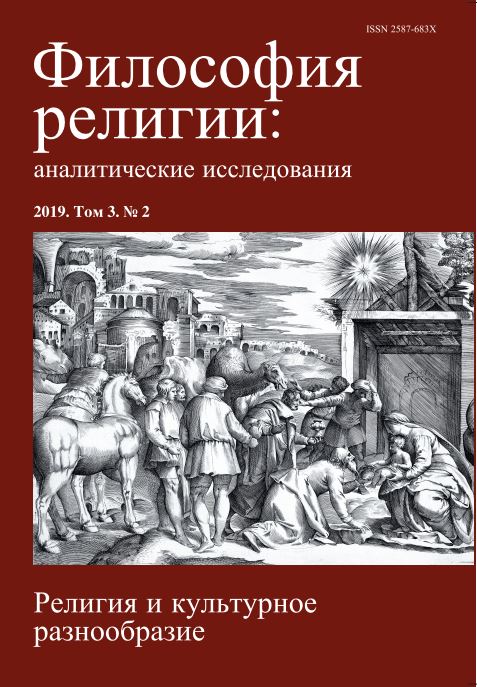Hegel, Comparative Religion and Religious Pluralism
DOI:
https://doi.org/10.21146/2587-683X-2019-3-2-50-59Ключевые слова:
Hegel, philosophy of religion, religious pluralism, Christianity, Comparative Theology, comparative religionАннотация
Hegel’s Lectures on the Philosophy of Religion played an important role in the development of the concept of world religions. Writing at the time of a great wave of interest in non-European cultures in the first half of the 19 th century, Hegel was among the first to realize the reality of religious pluralism. He saw that a philosophy of religion that wanted to favor Christianity must at a minimum have some story to tell about the other religions of the world. Today scholars are rightly skeptical of Hegel’s attempt to establish a hierarchy of world religions and to tell a narrative of how the one religion replaces the other in a teleological manner, with some religions occupying a higher stage of development than others. If we reject Hegel’s teleology and evolutionary view, is there anything meaningful left that we can work with? While we want to resist the idea that one religion sublates the next in Hegel’s sense, historians of religion are keen to suggest the many ways in which religious traditions have developed. In many cases religions seem to have overlapped and borrowed ideas from one another. If one focuses on these points of similarity among the world religions, a new approach to plurality presents itself. In this paper I wish to explore this approach, which has been designated as “Comparative Theology”.Загрузки
Опубликован
2019-12-31
Выпуск
Раздел
ИСТОРИЧЕСКИЕ ПАРАДИГМЫ
Как цитировать
Hegel, Comparative Religion and Religious Pluralism. (2019). Философия религии: аналитические исследования, 3(2), 50-59. https://doi.org/10.21146/2587-683X-2019-3-2-50-59

 Материалы доступны по лицензии
Материалы доступны по лицензии
